Chances are, you will have a furnace or a boiler in the house, which requires natural gas.
Should you decide to proceed with a natural gas line installation, it’s crucial to consult with licensed gas fitters who are well-versed in the correct installation of galvanised steel pipes. When installed by someone who is inexperienced, pipelines carrying natural gas can be extremely dangerous. After all, you don’t want gas leaks or explosions in your own house!
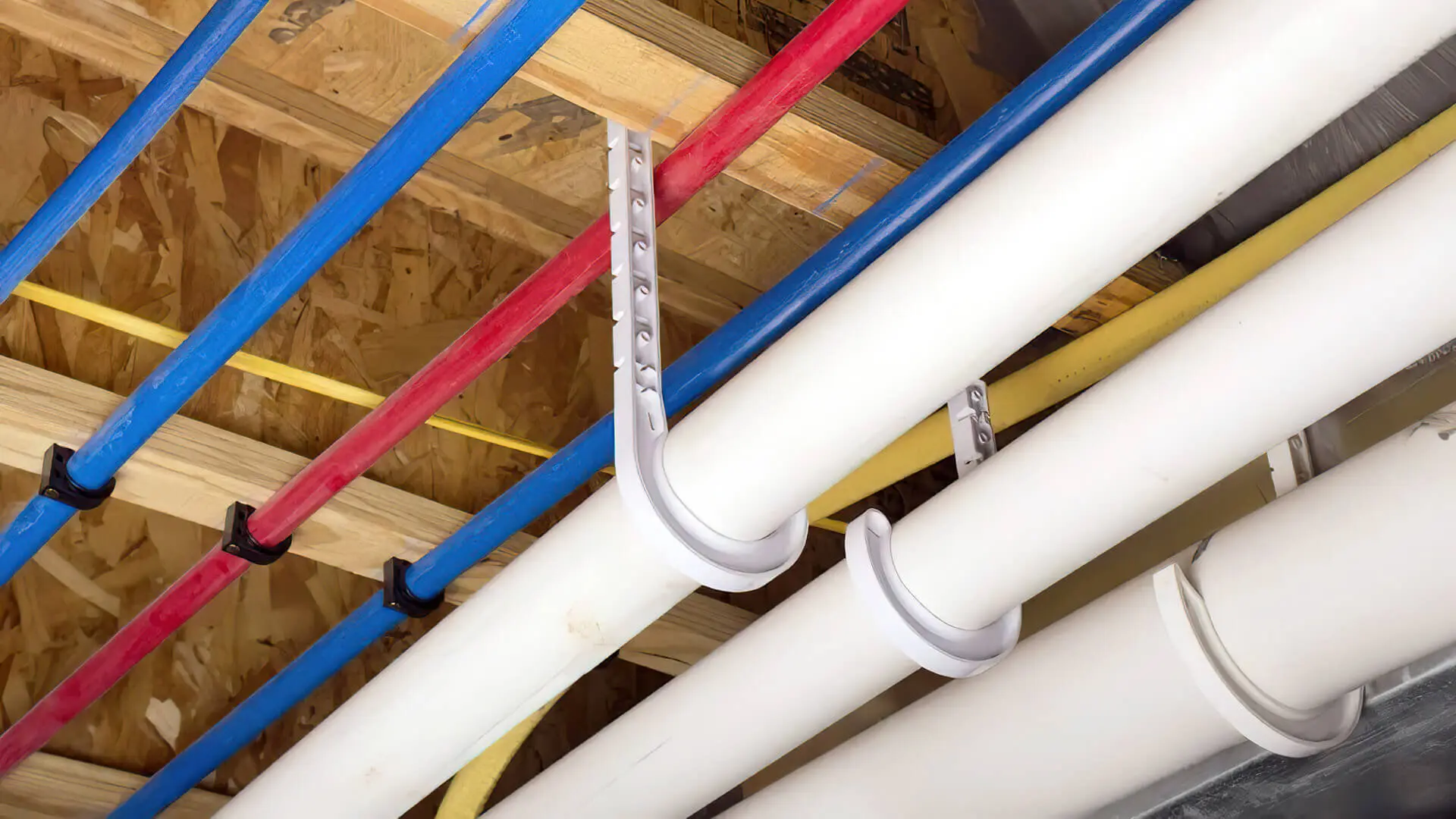
Your hot water system can utilise a variety of piping options, including CSST corrugated stainless steel and galvanised steel gas pipes.
So, we will discuss them in the next section. Let’s get going!
What Kind Of Pipe For Natural Gas Is Needed?
1. Copper Pipes
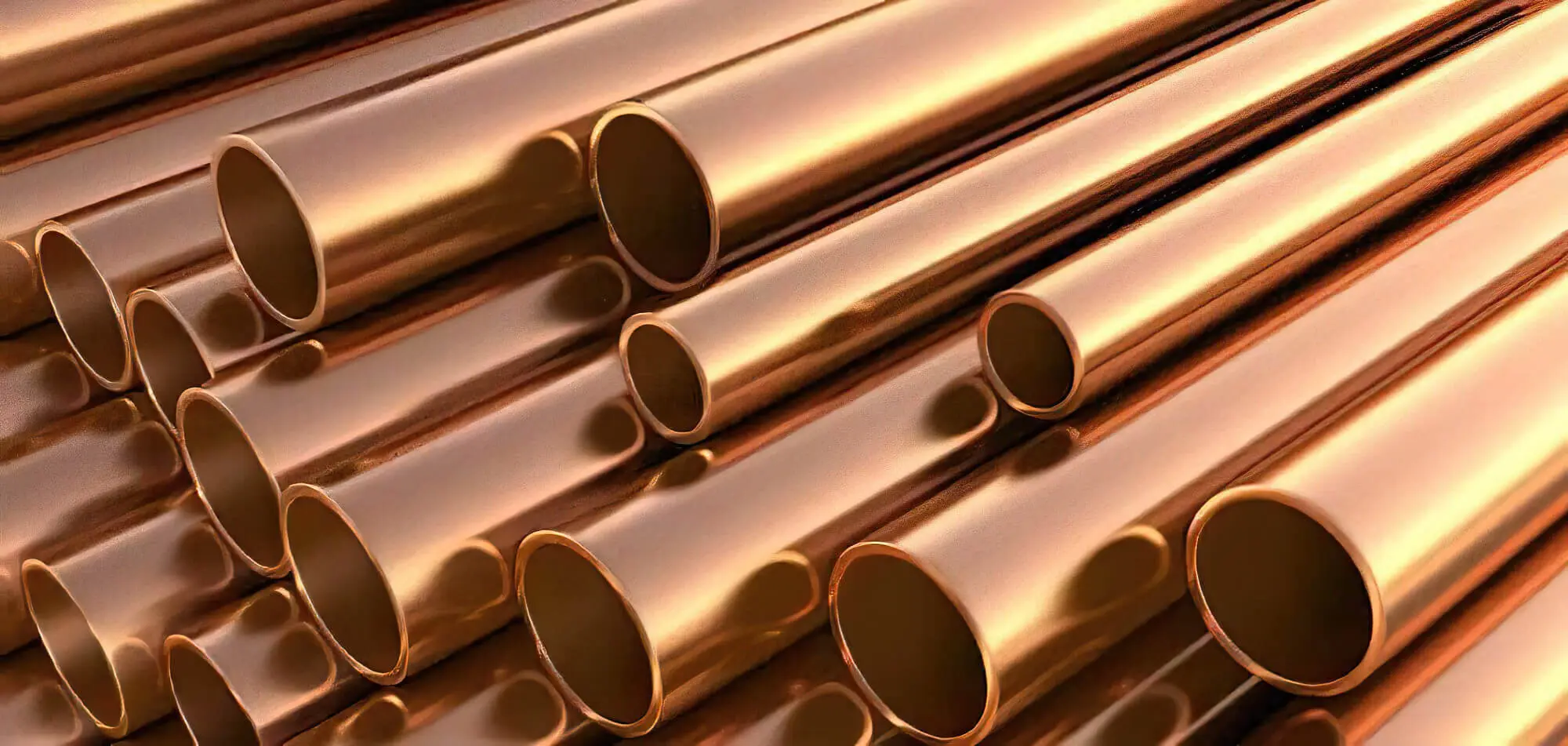
Copper pipes have been used for ages to transfer water. They usually have a half to one-inch dimension and are up to 254mm in length. You can opt for thin copper pipes that work well as natural gas lines within the house. On the other hand, thick pipes work better for natural gas supply service lines.
Establishing extensive gas piping systems necessitates connecting smaller pipelines, an operation achievable by techniques such as soldering, brazing, compression couplers, and push-to-connect fittings. Aluminium tubing could be an alternative solution for such applications. These methods are full-proof, and the connections should last for years. Copper piping does not rank high in corrosion resistance, and using copper gas lines in places with direct sunlight can be extremely dangerous.
2. CSST Pipe
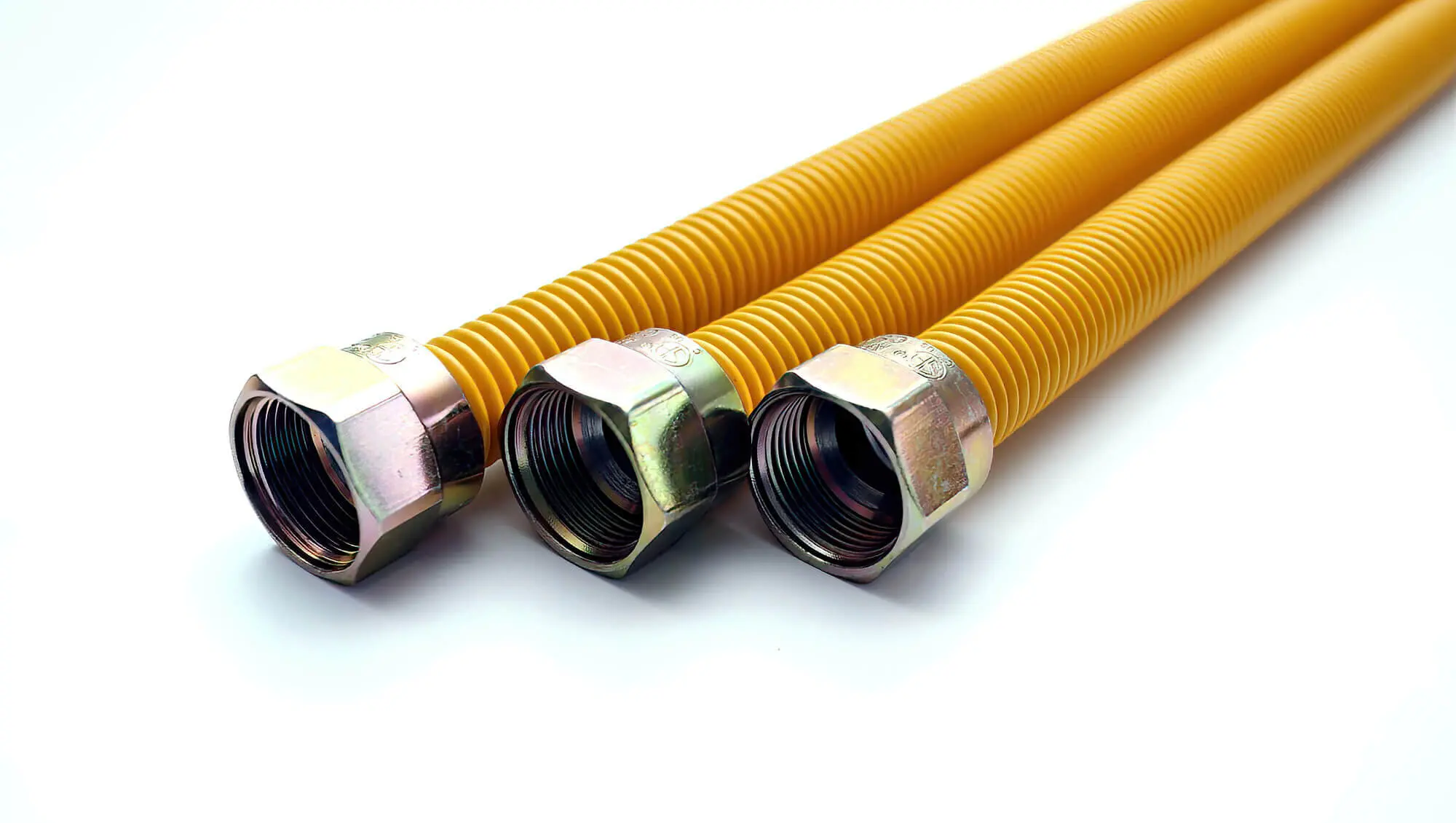
Stainless steel tubing, or CSST pipe, is ideal for new gas units at home. It’s widely used in the oil and gas sector for its versatility and flexibility. You can easily bend it, making it perfect for corners and edges of buildings.
When choosing between steel and CSST pipes, we recommend CSST. It’s lighter and easier to install, which makes the job simpler.
Additionally, compared to copper and brass pipe versions, stainless steel tubing can be longer and used to cover greater distances.
3. Black Pipe
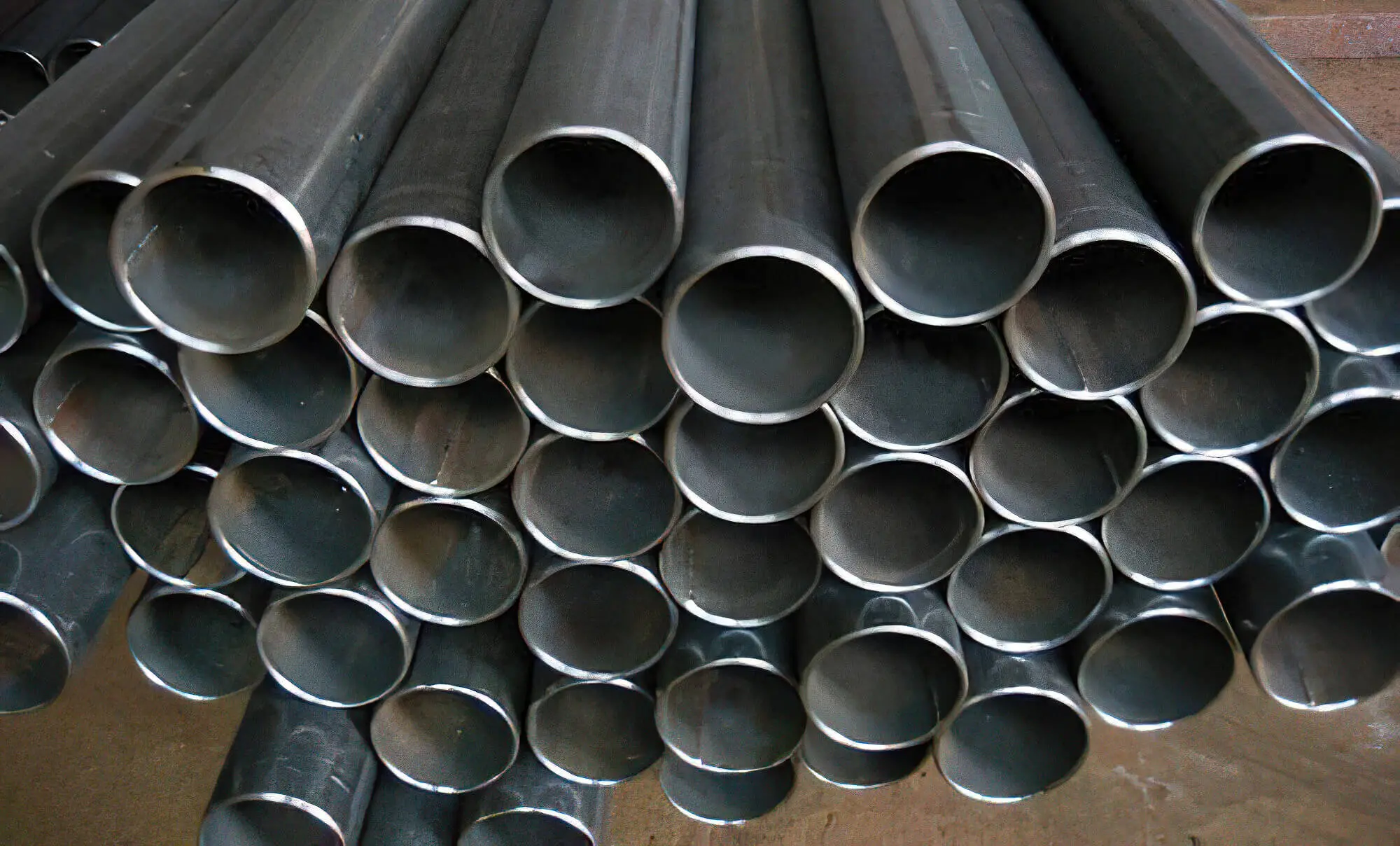
The black iron pipe, among the most durable options used for natural gas, is a product of iron and steel. Owing to their malleability, these pipes are ideal for residential applications. You can use them for the main gas line to transfer propane and natural gas.
Remember, installing these malleable iron pipes requires professional help. They can reach up to ten feet in length and have diameters from 6.35mm to 50.8mm. Black pipes are often used to connect indoor gas valves with outdoor gas lines.
4. PVC Pipe
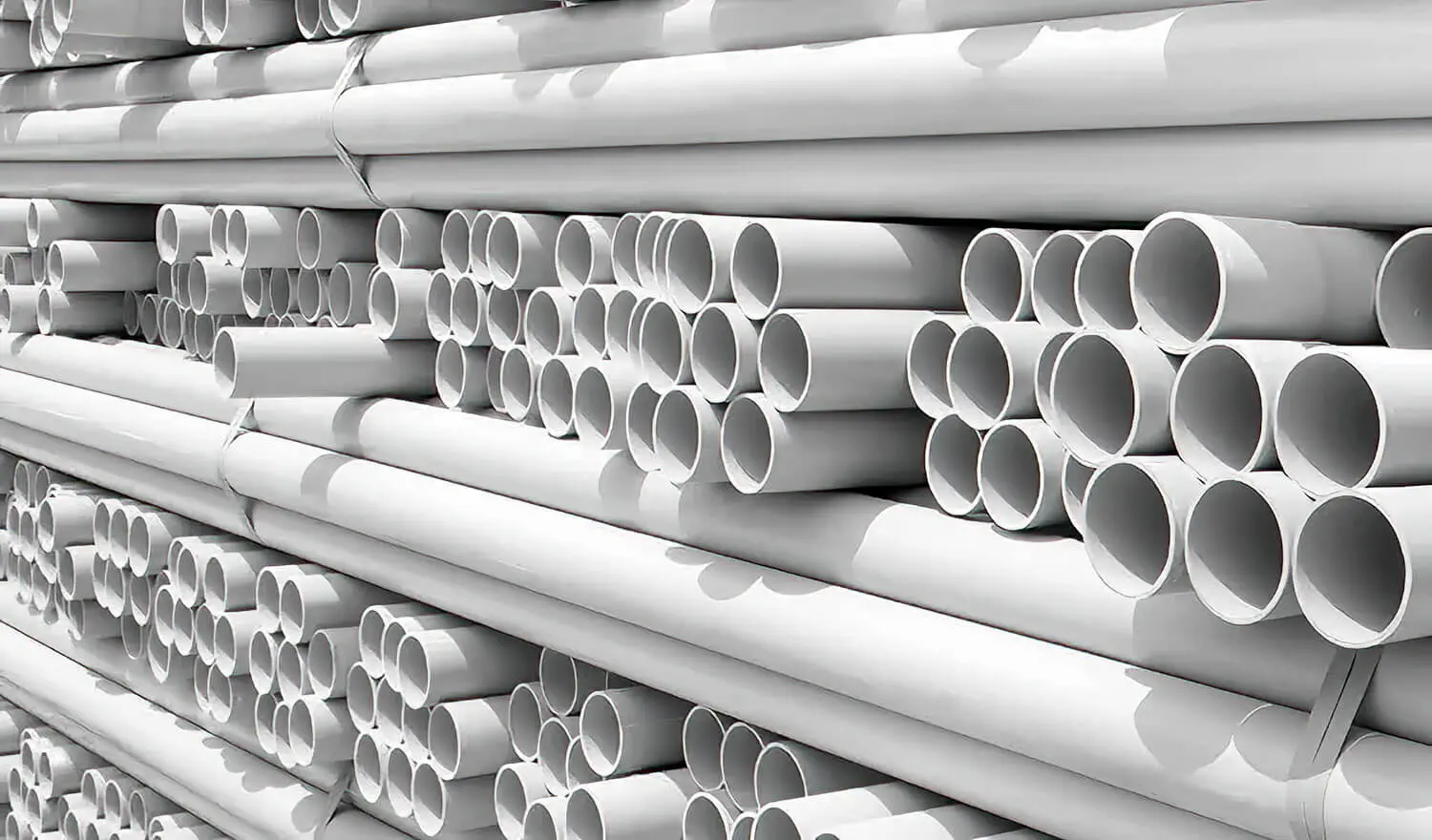
PVC pipes are a great option for water supply or gas piping. They can have a length of ten to 20 feet and may come with different diameters. Today, you will quickly get gas lines measuring 12.7mm to 152.4mm in diameter on the market.
Moving on to the installation process, you will need cement, push-to-connect fittings or primer to attach the PVC pipe. Also, always remember to install it in a dark and cool area.
5. Polyethylene Pipe
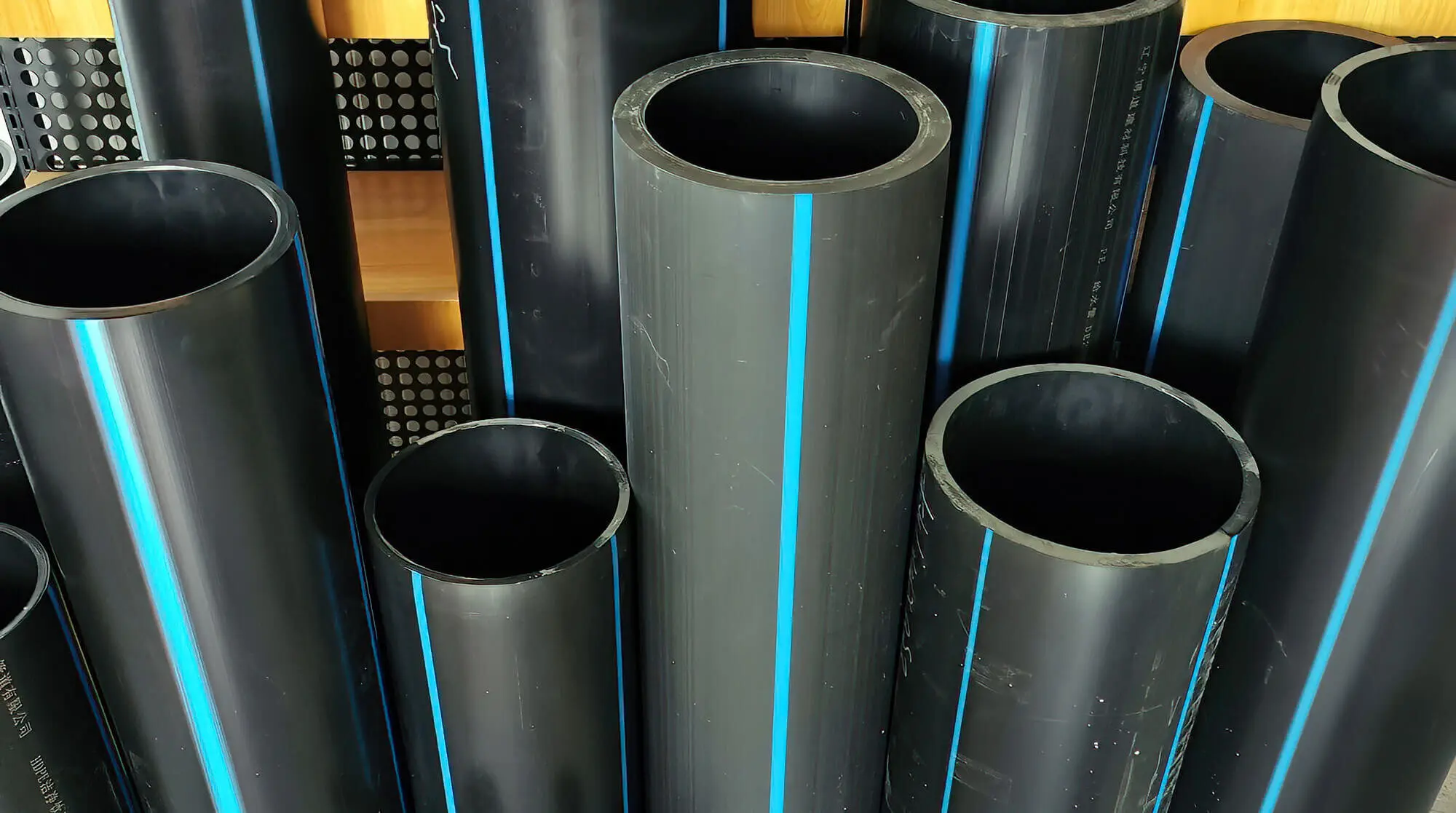
When it comes to underground installations for gas transit, polyethylene pipes are an exceptional choice. They are strong and can handle water and gas. Plus, they are used to transfer natural and propane gas under any highway-like system.
You will be happy to know they are environmentally friendly and offer high wear resistance in places with bad weather. Polyethylene pipes do not break easily; you can join them with primer and solvent. However, it will require some digging, and it is best to call professionals for the job.
Gas Piping Issues To Be Aware Of
If you are getting a gas piping system installed, there are some signs you need to be aware of in case of any issues with your gas lines. These include:
- Accumulation of rust inside or outside pipelines
- Rotten egg odour
- Leaking pipes or joints that are coming apart
- Spike in energy bills
- Strange hissing sounds
- Malfunctioning gas-powered appliances
If you notice any issues with your natural gas piping systems, promptly engage professional assistance. A faulty gas line can significantly contribute to poor air quality within your premises. Once you get the line fixed, you might be able to lower your energy bills. Also, if the joints come apart, the licensed plumber might be able to fix them with steel pipe instead of changing the entire line.
Plastic pipes are popular for indoor gas lines because they’re durable and flexible. They often replace older steel systems. But it’s essential to regularly check them for wear and tear to keep your home or business safe.
Our Opinion On The Best Pipe For Natural Gas
So, what is the best gas pipe? Every type of natural gas piping has pros and cons, so you should select one based on your specific requirements.
Some areas have specific safety requirements limiting materials, often following the national fuel gas code. Make sure to follow your state’s laws and local building rules before setting up a gas line. We recommend chatting with your local gas company or plumber for advice.
A professional plumber installing your natural gas pipe is essential, especially when focusing on joints to prevent leaks. If you’ve got new gas appliances, you’ll need a technician to link them to the main line and meter. The team at Big Blue Plumbing are experienced and ready to assist you. Need a new gas point installed or an appliance set up? Give us a call!
Ensure that you take care of these things, and you shouldn’t have any problems installing them. For those looking for info on installing a new gas heating system, you might want to check out our blog on “ What Size Water Heater Do I Need?”.
See you next time!



